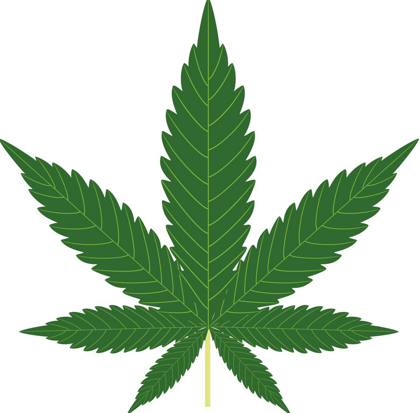Today's Cannabis May Pose Mental Health Risks

 Compared with 50 years ago, cannabis products today contain increased amounts of tetrahydrocannabinol
Compared with 50 years ago, cannabis products today contain increased amounts of tetrahydrocannabinol
(THC), the cannabinoid responsible for the high marijuana users experience,
...according to a research analysis which raises concerns about the mental health effects of the substance.
THC was typically between 1% and 5% of cannabis by weight in the 1960s. In some currently available strains, THC is a much as 25% of cannabis by weight, according to the special report in The Journal of the American Osteopathic Association.
The analysis warns health care providers that cannabis use, which is legal for medical use in 30 states and for recreational use in 8 states and the District of Columbia, can lead to schizophrenia and other psychiatric issues in some users.
“We have a special concern for young people in their late teens and early twenties, whose brains are still developing,” said Jeramy Peters, DO, lead study author and psychiatrist at Oregon Health & Science University in Portland. “Pediatricians should be aware of this, especially for patients who have exhibited symptoms of anxiety and depression, and be willing to have candid discussions about cannabis.”
Users with a family history of mental illness may be at increased risk for psychiatric issues linked with cannabis use. Other longer-term effects include impaired memory and concentration as well as decreased motivation. Patients whose health status or social or occupational functioning is impaired by cannabis use should be counseled to stop using cannabis or referred for substance abuse treatment, according to the report.
How cannabis is used affects the timing and duration of intoxication, the report explains. Smoking or inhaling cannabis using a vaporizer (“vaping”) usually produces effects within 2 minutes that last up to 4 hours.  When ingested orally, THC absorption is more inconsistent, with users experiencing effects within 2-4 hours that last as many as 8 hours. Because of the intoxication delay, oral ingestion is linked with easier overdose and negative side effects.
When ingested orally, THC absorption is more inconsistent, with users experiencing effects within 2-4 hours that last as many as 8 hours. Because of the intoxication delay, oral ingestion is linked with easier overdose and negative side effects.
“It is very difficult to tell someone what effect they can expect without knowing the specifics of the product,” said Walter Prozialeck, PhD, professor and chair of the pharmacology department at the Chicago College of Osteopathic Medicine at Midwestern University.
“How much THC is in the product, how it’s consumed—and, of course, the individual’s physiology—all play a role in determining their experience.”

